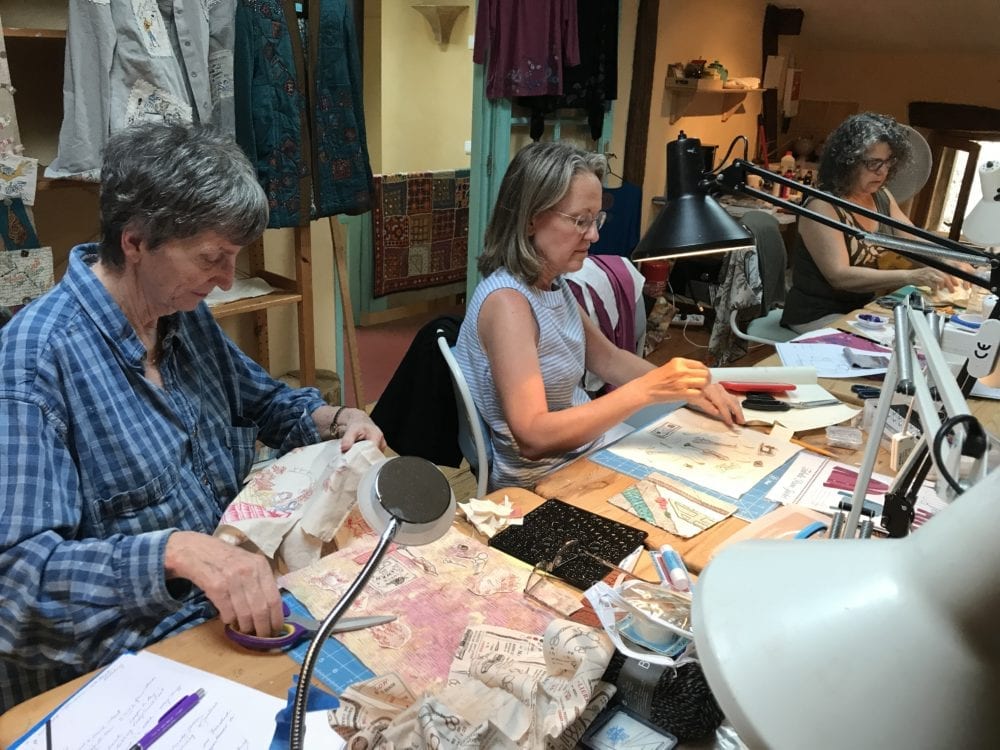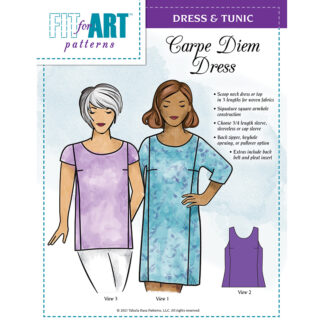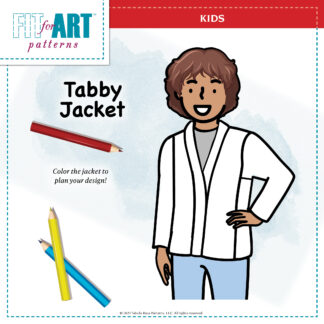
There is a movement in sewing, like in many other old established practices, to move back to the pre-industrial methods of creating. Embrace the process, one teacher might say. Another will say, experience the calm and creativity of a hand stitching practice. As a custom dressmaker, my career prior to launching Fit for Art, I spent hours hand stitching lace and finishes onto wedding gowns and adding hand picked details to special garments using precious materials. These projects were certainly rooted in tradition but they were always being done under deadline and were certainly not low stress.

Get Interested
In recent years, the slow stitching movement has engaged me differently with its possibilities. My first lap project was to creatively mend a pair of worn out but beloved jeans. I love the texture achieved with kantha stitching and boro patching technique. It is rewarding to stretch out the process to create a hand-worked project that once finished, feels like a real treasure of skill and design inspiration, thread choices and quiet stitching.

The For the Birds hand quilted jacket is a great example of this. It took several years to plan and create the jacket using stash fabric that had haunted me for years with its seemingly unachievable design possibilities. You can follow my progress on this in the blog.
For the past year and a half I have been working on a different project that grew out of a workshop I participated in through the online group TextileArtist.org. The first part of the class involved choosing colors and painting discarded cloth. I used an old discolored pillowcase.

The mark making process with paint was so different from my usual painting techniques. Then the painted cloth was cut into sections, assembled into a long thin strip and over embroidered.
Draw on Past Experiences
Embroidery was my constant companion as a girl and even into my teen and young adult years, so the hand work, though much more modern in appearance than my youthful projects, took me back to my roots.


Because this interesting strip of modern slow stitching is ready for it’s next step, becoming a front band on a Tabula Rasa Jacket or vest, and I don’t have the time to focus on that right now, it sits and waits for a window of opportunity to use modern techniques to make the Tabula Rasa that it will adorn once I slow stitch it into place.
In France over the holidays, a new slow stitching project was designed and begun. A similar jacket to the For the Birds jacket in different colors and with different birds from the same linen/cotton canvas fabric. Enjoy these photos of the beginning of this new project.

Organize Threads and Fabric to Experiment
Having a slow stitching project ready to pick up and put down at will gives my busy hands something to do when I don’t want to have to think beyond what color thread, what stitch would be best, what direction should I stitch? For me, it is even better than coloring and keeps my tired fingers agile on days when they don’t get much exercise beyond typing.
Join Other Stitchers for Support

Join us in France to begin to play with these processes in a relaxed and ancient setting. Or, simply gather up some fabric, needles and thread and consider the possibilities. Keep the materials near where you sit in the evenings, or make hand stitching your creative morning work if that is your habit. I hope you find it as fun and easy as I do.

Need a boost but France is not on your horizon? Try taking a class. Edye and I attended a Crazy Quilt workshop at the Maryland Center for History and Culture led by the African American Quilters of Baltimore last Saturday. It was a great entry point. Keep an eye out for mending or hand stitching classes at your local quilt store or community makers center, or google Slow Stitching Practice for online opportunities.
Happy winter sewing, RAE







Enjoyable post. Thanks Rae!